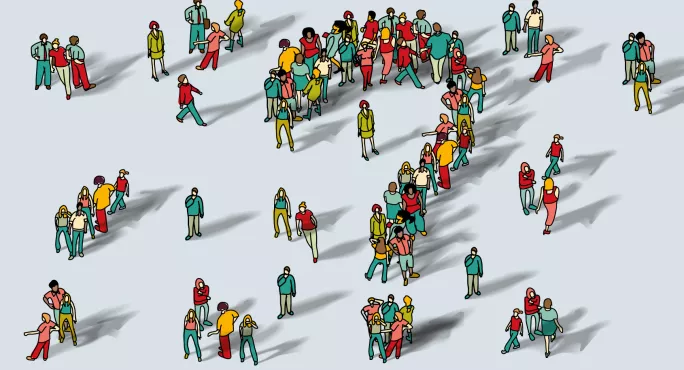Analysis: school leaders’ view of SQA appeals

Following two years without exams, their return in 2022 led to concerns about fairness. Students were due to base their life chances on exams once more. And appeals were back, giving students the opportunity to review the Scottish Qualifications Authority (SQA) national course grades whenever they failed to achieve the necessary standard for the externally-assessed components of their course.
These new appeals were to be based on valid and reliable evidence of demonstrated attainment against national standards, which all teachers routinely gather as they navigate the courses and prepare students for exams.
In short, each student undertook a course based on the course specifications and teachers used the provided standards, guidance and exemplification to evaluate progress. Thereafter, teachers submitted a student’s estimated grade, based on demonstrated learning throughout the year. Simple, it seemed.
If students didn’t do well on the day - which was extremely likely given none of the S4 and S5 learners had ever sat a high-stakes exam before (and even for S6s, exams were a distant memory) - then schools could submit coursework and formal assessments undertaken in school as evidence to match the estimated grade.
- Also today: New attainment and school leaver destination figures
- Exams 2023: Teachers ‘might wish to delay’ becoming SQA markers
- Analysis: The long view of Nicola Sturgeon’s education record
What could go wrong? Experienced professionals taught students and applied the standards set. Surely a tick-box exercise acknowledging that the teacher who taught and assessed a student over time would provide reliable evidence?
Most students received their results on Tuesday 9 August with a cheer, perhaps merely in relief. Many others read their texts or opened their letters to surprised dismay to find their results didn’t quite match their anticipated grades, their estimates failing to match their exam hall performance. Some 58,035 certificated grades were appealed, 11 per cent of all the National 5s, Highers and Advanced Highers.
Teachers across the country were not surprised that so many failed. Even in a normal year, the pressure of “the day”, the stress of the “all or nothing” exam, and the fear of “blank page syndrome”, while sitting at a wee desk in a big hall, have always led to many bright and able students to underperform. No matter, appeals would save the day.
Unfortunately, once the SQA completed the clerical checks and assessed the quality of the coursework submitted, it formed the opinion (expressed through statistical reporting rather than blunt statement) that teachers couldn’t assess to the standard. Consequently, only 29.8 per cent of appeals were successful.
SQA statistics can be pored over at leisure. As with all stats, one is free to pick and choose which stats fit a preferred narrative. In reality, there is little difference between independent and maintained schools, between boys and girls and across the Scottish Index of Multiple Deprivation quintiles.
The rationale for some schools appealing more than others will be based on three factors: the school may have overestimated across multiple subjects; the school may have followed an “if you don’t ask, you don’t get” policy; or it may have had a higher number of students in subject areas or levels with more marking discrepancy. For example, 52.9 per cent of languages appeals were successful, compared to only 10.7 per cent of science appeals.
Poring over statistics and making assumptions about individual schools or subjects at this stage is meaningless. Far more important, say most of the headteachers I have spoken to from across the country, is the question of competence. But is it the competence of SQA or schools, or both?
Teachers gave estimates based on evidence in the belief that their professional judgement would be trusted and that appeals would be granted. As 70 per cent of appeals were unsuccessful, that seems to suggest the evidence was not to the standard published. It seems unlikely, however, that so many experienced teachers could be incapable of following published standards, particularly with all the moderation that took place as part of the “alternative certification model” followed in 2022.
Many headteachers believe that the schools’ estimates were accurate and that political pressure forced SQA statisticians to apply “norm-referencing” to ensure the previously acknowledged “soft landing” strategy designed to return pass rates to “normal” pre-Covid levels.
Regardless, my view is this: the exams have been sat, the appeals progressed and no matter the bitter taste left from 2022, staff within both schools and the SQA must now come together. We can and must build the bridges and professionalism necessary to ensure our children receive the fairest recognition for all their efforts and achievements in the years to come.
Peter Bain is executive headteacher of Oban and Tiree schools, vice-president of School Leaders Scotland and chair of the BOCSH group of headteachers
Register with Tes and you can read two free articles every month plus you'll have access to our range of award-winning newsletters.
Keep reading with our special offer!
You’ve reached your limit of free articles this month.
- Unlimited access to all Tes magazine content
- Save your favourite articles and gift them to your colleagues
- Exclusive subscriber-only stories
- Over 200,000 archived articles
- Unlimited access to all Tes magazine content
- Save your favourite articles and gift them to your colleagues
- Exclusive subscriber-only stories
- Over 200,000 archived articles
topics in this article



